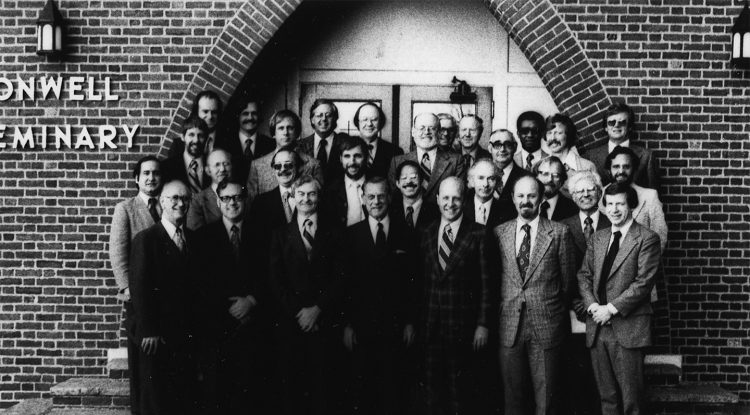Some obsess about Jerry Falwell, Jr., other about Tim Keller. This time the latter obsession runs to Keller’s recommendation of a book that came out over forty years ago and remains seminal for him. Richard Lovelace’s Dynamics of Spiritual Life (1979) is what made Redeemer NYC tick. As Keller admits, “Anyone who knows my ministry and reads this book will say, ‘So that’s where Keller got all this stuff!'” (He has help from other allies.)
One oddity is thinking back to what you were reading forty years ago and then seeing whether it still holds up. Since Keller has ministered in NYC, he has read a lot of books that other pastors and theologians do not typically read — works in sociology, history, urbanism, journalism. He is the pastor as intellectual. Someone might think that reading historical scholarship over the course of a career would give you a different estimate of a history of revivalism, one not written for a university press and that reflects more the debates among 1970s evangelicals than it does what happened with Whitefield and Edwards. This is sort of like mmmmeeeEEE today recommending Francis Schaeffer’s He Is There and He Is Not Silent as the key to understanding God and revelation. After reading Schaeffer in the 1970s, I went on to read a number of theologians and confessions that let me know how little I had understood from reading Schaeffer (who at the time was a great aid). I now turn to Ursinus, Berhkof, Calvin, and Bavinck. Aren’t I special.
Equally odd but also perhaps revealing of Keller’s place in PCA dynamics are a number assertions and arguments that Lovelace, who was ordained as a minister in the PCUSA while teaching at Gordon-Conwell Theological Seminary, makes about evangelicalism around the time the book was written. These may reveal less about planting churches or carrying out the ministry than they do about ways of perceiving the church in the United States.
Lovelace abounds in identifying the polarities of a dynamic and then shooting for the middle, the third way, which of course is classic Keller:
Currently our denominations seem to break down into two categories: smaller, conservative separatist bodies maintaining the pure church ideal with antisceptic discipline so strong that it occasionally sterilizes their own creativity; and the large, historical descendants of earlier separations, now so indiscriminately inclusive that to Evangelicals they resemble mission fields. Evangelicals themselves, similarly, are divided into those who might be characterized as white corpuscles, members of separated churches committed to rigorous discipline, and red corpuscles, those who have tried to adapt themselves to the large, pluralistic bodies in order to feed and serve their memberships. (291-92)
Notice the biological metaphors and think the Gospel Ecosystem.
Here’s another contrast that makes the way straight for the via media:
In the early twentieth century the immense thought storm of secular humanism, made up of apparently consistent and convincing alternates to the biblical world view, burst upon the church and shattered the clarity of its thinking and hence the unity of its forces. Live orthodoxy might have weathered the storm and risen to the educational challenge humanism presented, setting out to construct a consistently biblical counter-position which would seek to integrate all the new data pouring into human consciousness. But [Evangelicalism] broke into two. Half of it emulated the ostrich, turned its back on the culture, immersed its head in the biblical world and almost became an enculturated folk religion. The other half grappled with the task of integrating modern and biblical thought but often lost its biblical moorings and slipped away into another kind of enculturalst: conformity to the secular mind. (281)
Actually, that does remind me of Schaeffer, sweeping historical claims with remarkable confidence. A sentence distills a book and a century of developments (or not). Who does that after reading at all widely in history and knowing how accidental and contingent the past was?
Where you do see in Lovelace a forerunner to Keller’s operations is this:
What about transdenominational renewal within the ecumenical movement? We have noted above that there is already a functionally Evangelical ecumenical movement. The recognition of this fact is remarkably apparent in the recent admirable decision of the Presbyterian Church of America (the product of secession from the Northern and Southern Presbyterian Churches) not to form its own Department of Missions, but rather to use the existing network of interdenominational Evangelical faith missions to disseminate its Reformed doctrinal position throughout the church. (332)
Come to think of it, with Redeemer City-to-City in mind, the blueprint for Keller’s ministry very well have been in Lovelace’s book (except that City-to-City, though interdenominational, is not OMF International, Africa Inland Mission, and Ethnos 360).




